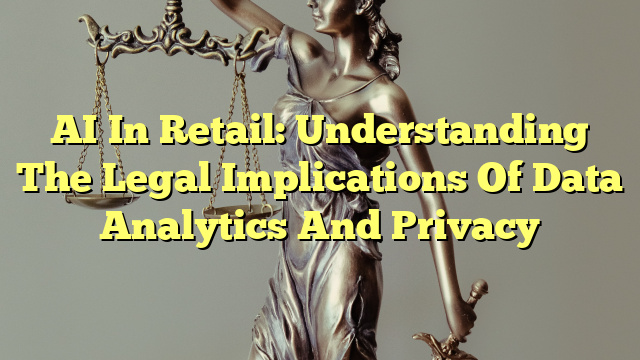Table of Contents
Legal Implications of Artificial Intelligence
Artificial intelligence (AI) has the potential to revolutionize the retail industry, but it also raises important legal considerations. As AI systems become more sophisticated, they can collect, analyze, and utilize vast amounts of data, including personal information. This raises concerns about privacy, data protection, and potential legal liabilities.
One of the main legal implications of AI is the need for transparency and accountability. Retailers must ensure that their AI systems are transparent in their decision-making processes and accountable for any errors or biases that may arise. This includes complying with relevant data protection and privacy laws, such as the General Data Protection Regulation (GDPR) in the European Union.
Impact on Privacy Rights
AI technologies can greatly impact privacy rights by collecting and analyzing personal data without individuals’ explicit consent. This raises concerns about the unauthorized use of personal information and the potential for discrimination or profiling based on sensitive attributes.
Privacy rights may be further compromised when AI systems are used for surveillance or facial recognition purposes. Retailers must ensure that they have appropriate safeguards in place to protect individuals’ privacy and comply with applicable laws and regulations.
AI and Personal Data Protection
While AI can pose challenges to privacy rights, it can also play a role in enhancing personal data protection. AI algorithms can be used to detect and prevent data breaches, identify potential security vulnerabilities, and automate data protection processes.
By leveraging AI technologies, retailers can strengthen their data protection measures and ensure compliance with data protection regulations. This includes implementing robust security measures, conducting regular audits, and providing individuals with greater control over their personal data.
Impact on Business Processes and Privacy
AI has the potential to significantly impact business processes, including those related to privacy. For example, AI systems can automate data processing tasks, such as data anonymization or pseudonymization, to protect individuals’ privacy.
However, the use of AI in business processes also raises concerns about the potential for automated decision-making and the lack of human oversight. Retailers must strike a balance between utilizing AI technologies to improve efficiency and protecting individuals’ privacy rights.

